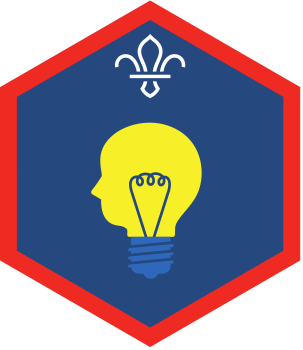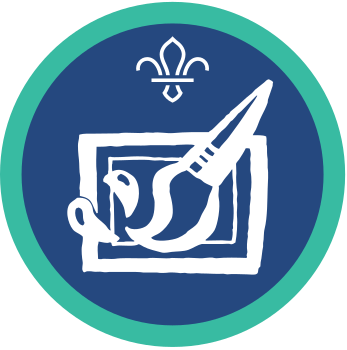Talk about the book, The Black Flamingo
You’ll need
- Device with access to the internet
- Pens or pencils
- Scrap paper
The Black Flamingo
This book explores the life of a mixed-race gay teenager determined to be himself. Michael’s inevitable wobbles make his character feel real, and the reader sees the importance of the support he has from his family and friends.
Read the first few chaptersBefore you begin
- Use the safety checklist to help you plan and risk assess your activity. Additional help to carry out your risk assessment, including examples can be found here. Don’t forget to make sure all young people and adults involved in the activity know how to take part safely.
- Make sure you’ll have enough adult helpers. You may need some parents and carers to help if you’re short on helpers.
Planning this activity
- This is a great activity to run during an online session. Check out the advice on using Zoom and other popular digital platforms and the guidance on being safe online.
- Everyone should read or listen to The Black Flamingo by Dean Atta before the book club. You can find which libraries in your area stock this book using the WorldCat search tool, or borrow the e-book or audiobook versions through Overdrive.
- You could get everyone excited about the book club by sharing the video below of author Dean Atta performing extracts from the book.
- It’s up to the book club’s members to decide exactly how they run their club, so make sure everyone has their say. We’ve included suggestions to get you started, but feel free to adapt them so they work for you.
To watch in full screen, double click the video
Play literary alphabet soup
- Gather everyone together in a circle.
- The first person should say something about the book or how it made them feel that begins with the letter A. They could choose a character, event, place, object, or feeling. They should say the name of the person they’re passing the alphabet soup to.
- Think about how you’ll make sure everyone gets a go – could people put their hands up until they’ve had a turn, will you go round in a circle, or will you just keep track?
- The next person should say something about the book or how it made them feel that begins with the better B, then pass the soup on.
- Everyone should keep playing until everyone’s had at least one turn and has finished the alphabet.
Share in 60 seconds
- Give out a sheet of paper to each person. Everyone should divide a piece of paper into four sections.
- Ask people to fill one section by writing or drawing about a character they’d like to know more about. Give everyone 60 seconds and let people know when their time is up.
- Fill the other sections with the place or event they could imagine most clearly, the most important part of the story, and the character or event they related to most. Again, give everyone 60 seconds for each section.
- Gather back together in a circle and chose one of the sections. Everyone who wants to should take it in turns to share what they wrote or drew in that section. Continue to invite people to share ideas for all of the sections. Remember, there are no right or wrong answers here. It’s important to let people speak without being interrupted.
Michael and me
- Everyone should choose one word that describes both Michael Angeli and themselves. This word could be a personality trait or physical attribute you both share, a quality you both value, a feeling you’ve both felt or an experience you’ve both had.
- Everyone who’s happy to share their word should take it in turns to say it, or write it on a piece of paper and hold it up.
- After speaking about the book, why not create your own book cover, poster or bookmark for the book? You could also write a review or write your own story using the characters.
Reflection
This book is all about identity and self-discovery. Why wasn’t belonging simple for Michael? How did he find the freedom to be himself? People could think about how identities are really complex and how things like racism make it even more difficult of people to explore their identity safely.
Everyone should make a pledge to support others as they explore their identity and think about how they’ll do it (for example, they could pledge to listen without judging). Everyone should make a second pledge to support themselves as they explore their identity (for example, they could pledge to remind themselves that questioning who you are is normal and OK). People could write their pledge down, say it out loud, or just think about it quietly.
Head over to The Children’s Society to learn more about why personal identity is important and what you can do if you’re feeling confused about your identity. Childline also has support and information about racism and sexual and gender identity.
Safety
All activities must be safely managed. You must complete a thorough risk assessment and take appropriate steps to reduce risk. Use the safety checklist to help you plan and risk assess your activity. Always get approval for the activity, and have suitable supervision and an InTouch process.
- Online safety
Supervise young people when they’re online and give them advice about staying safe. Take a look at our online safety or bullying guidance. The NSPCC offers more advice and guidance, too. If you want to know more about specific social networks and games, Childnet has information and safety tips for apps. You can also report anything that’s worried you online to the Child Exploitation and Online Protection Command. As always, if you’ve got concerns about a young person’s welfare, including their online experiences, follow the Yellow Card to make a report.
You can find tips for supporting young people with reading in this BBC Bitesize article from the National Reading Agency. Dean Atta narrated the audiobook of The Black Flamingo – you could use this audiobook if it works better for anyone.
All Scout activities should be inclusive and accessible.
If Dean Atta’s book inspired you, why not try writing a story of your own? NaNoWriMo (or National Novel Writing Month) have a young writer’s programme to help young people put pen to paper and craft a world out of words.

